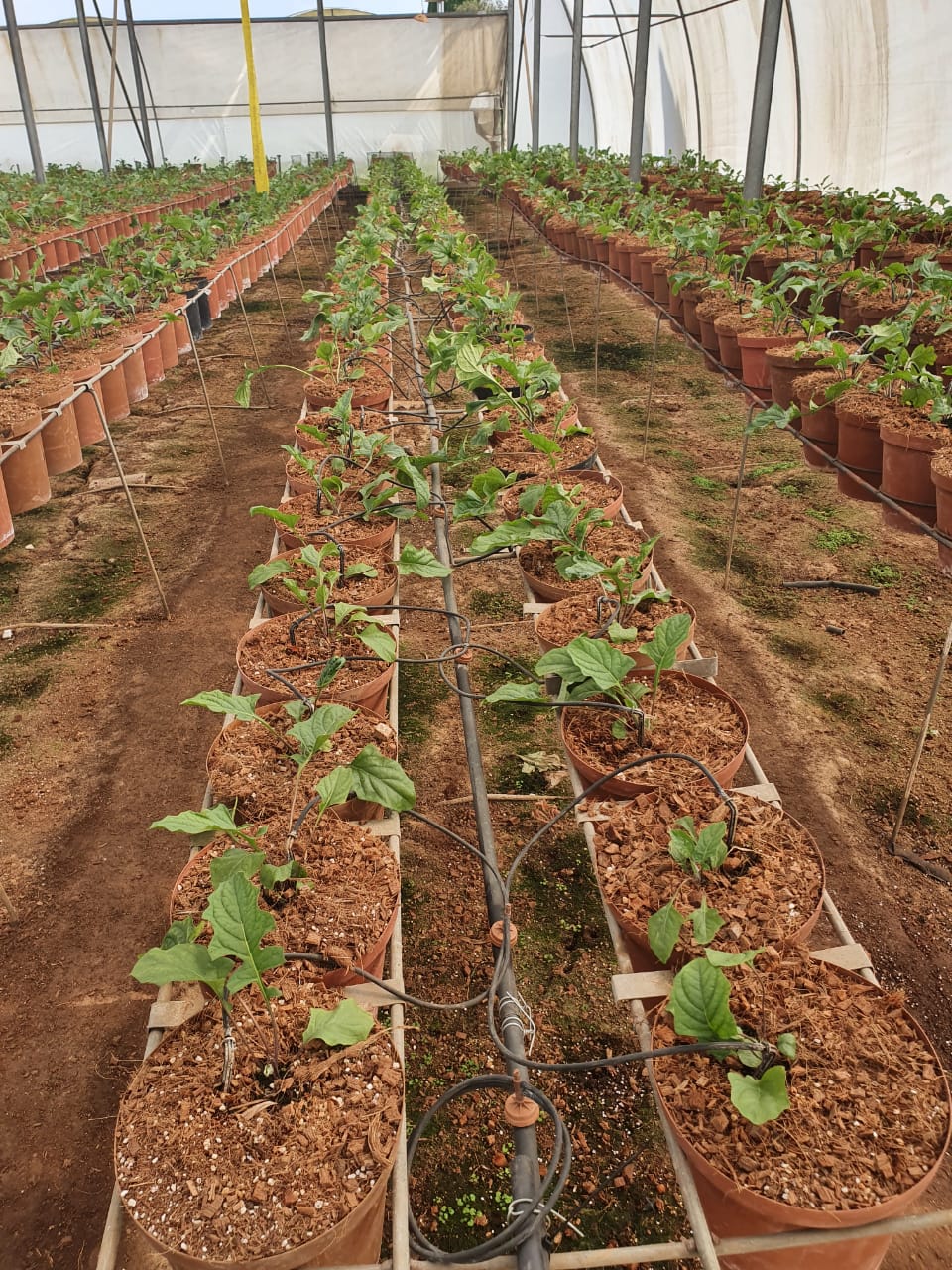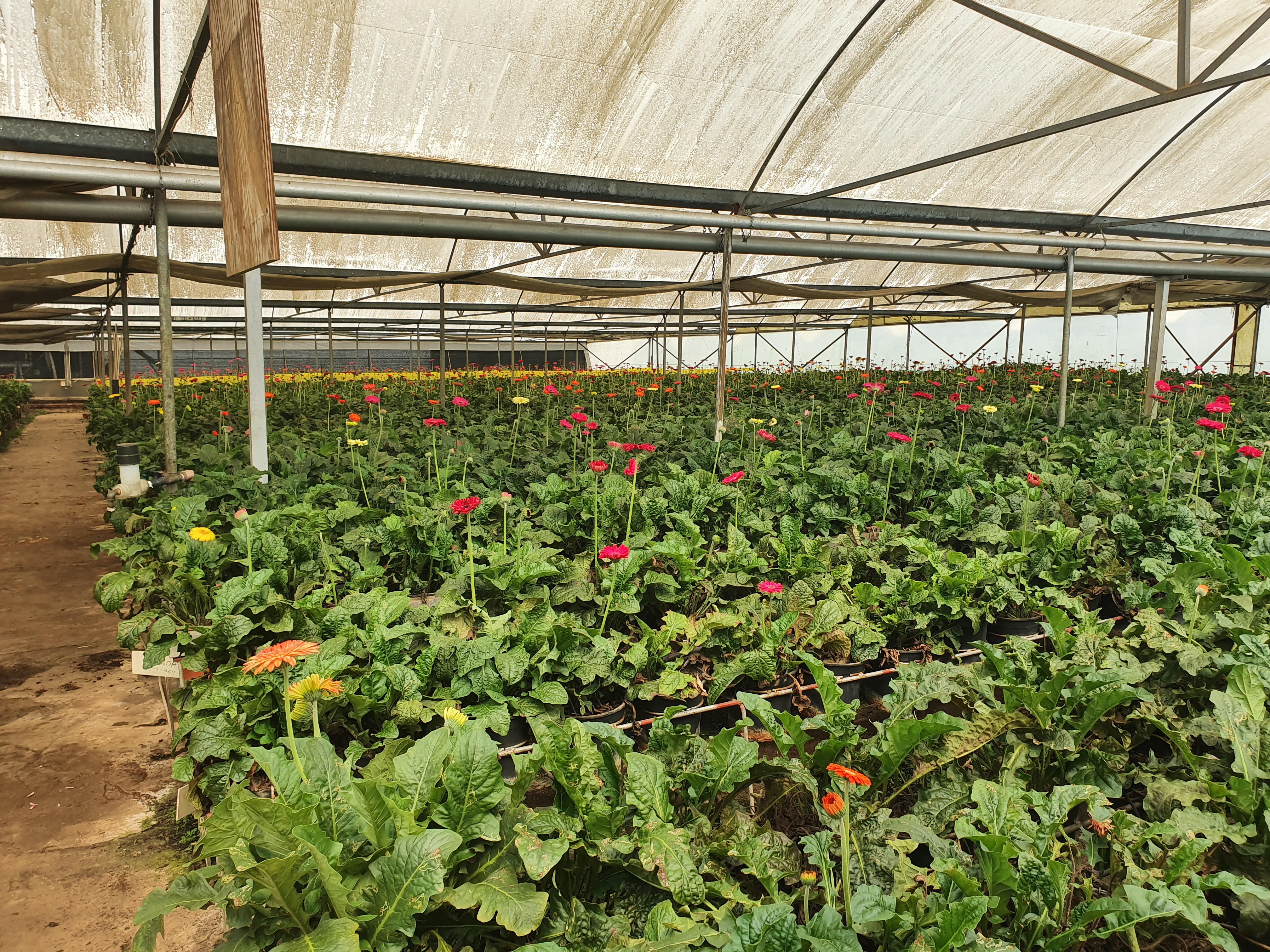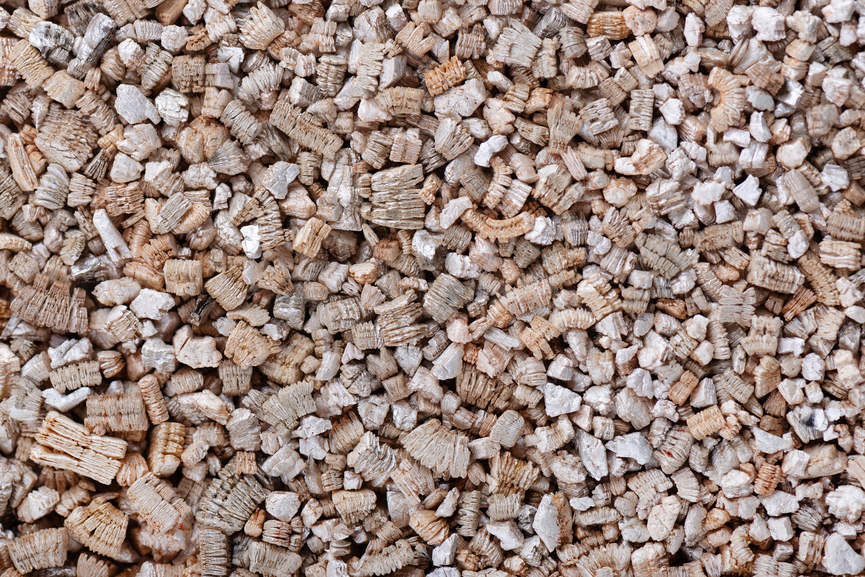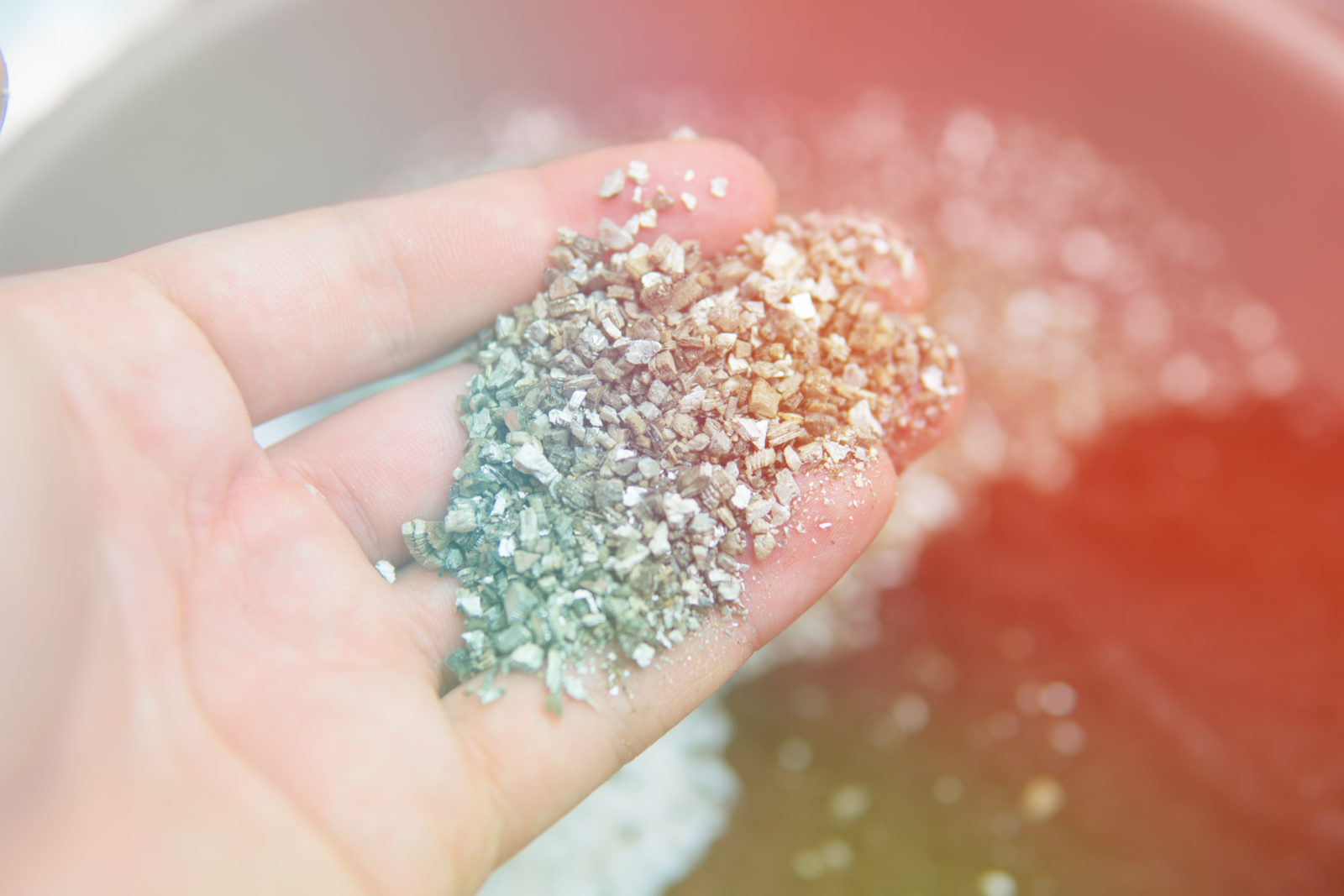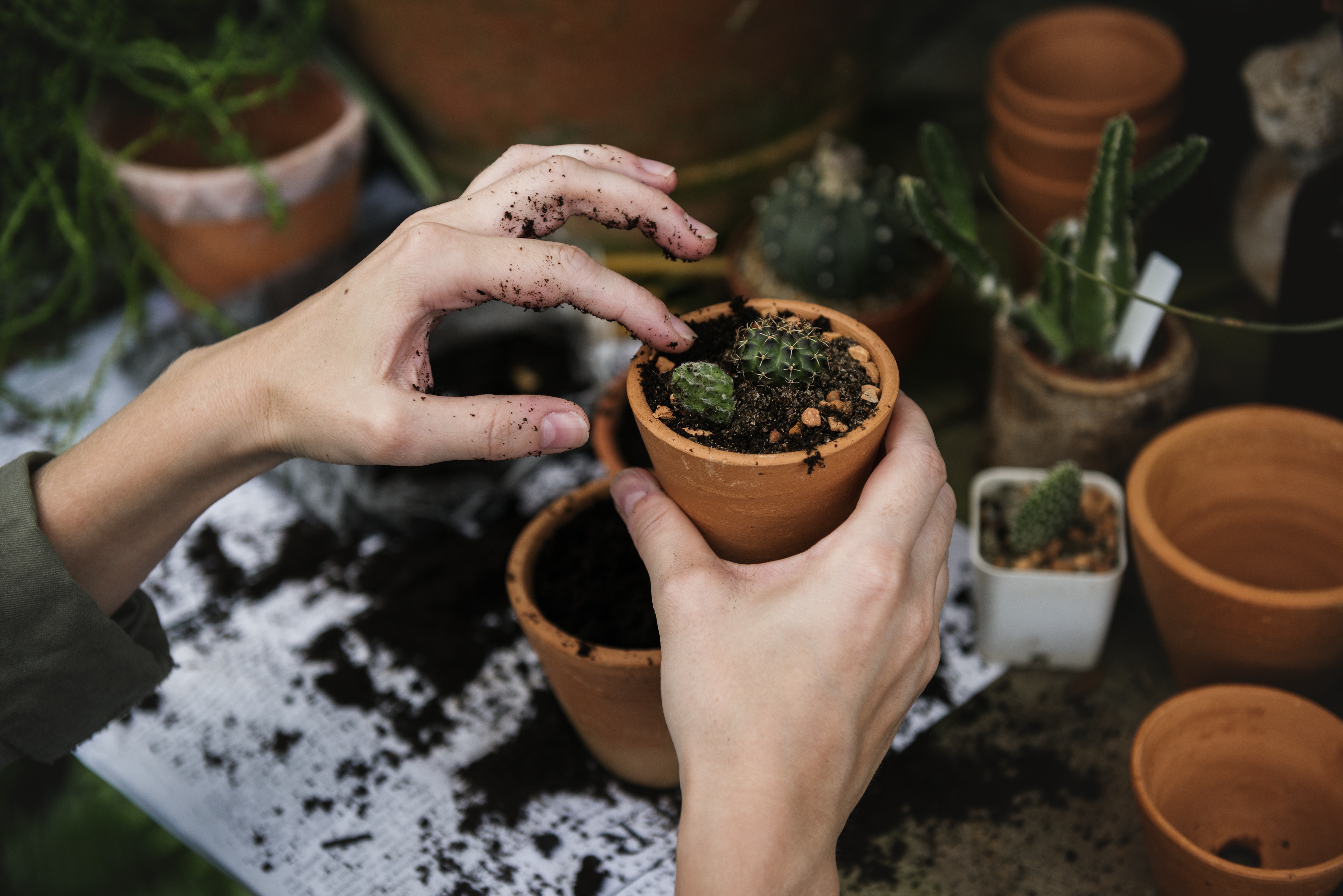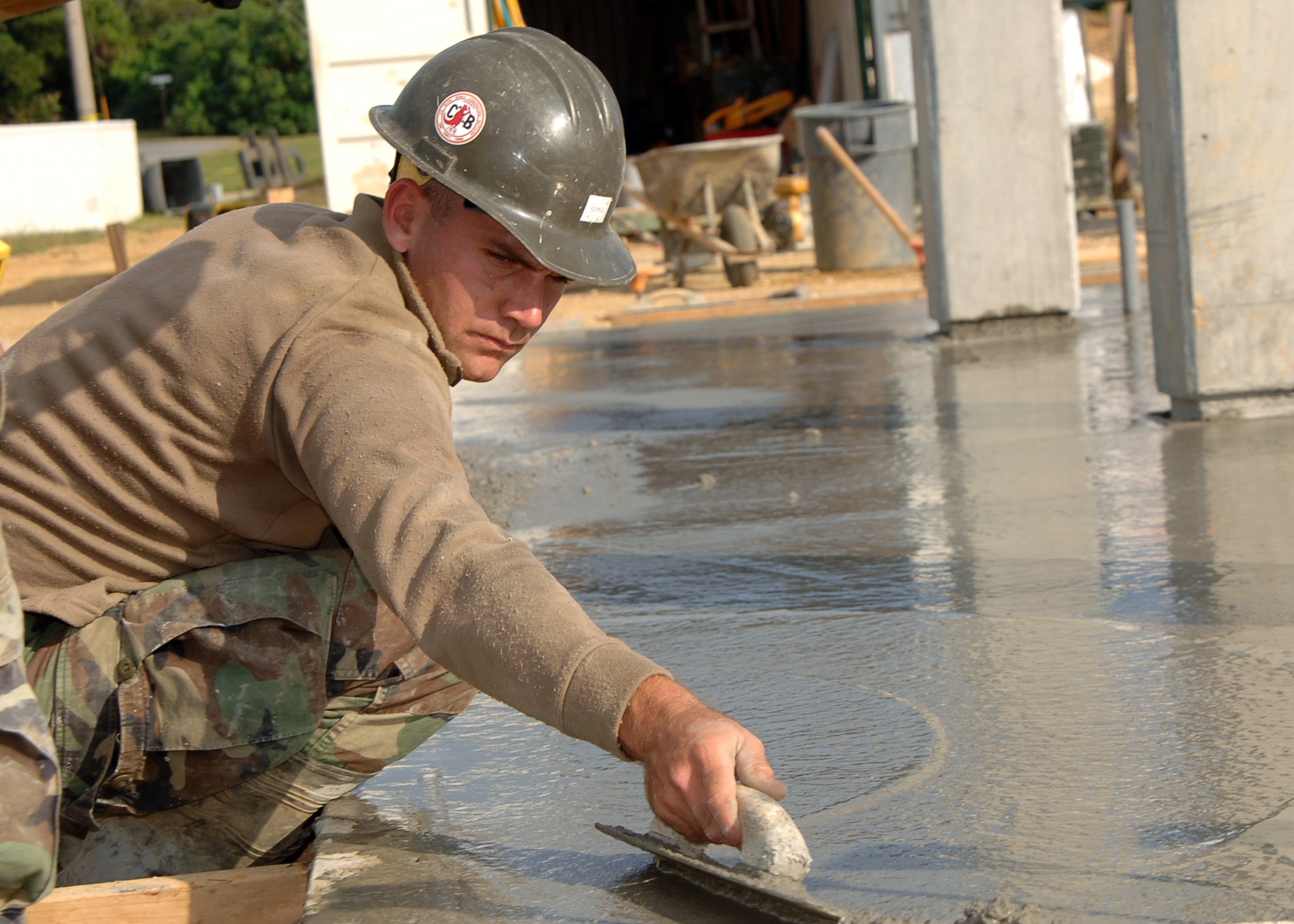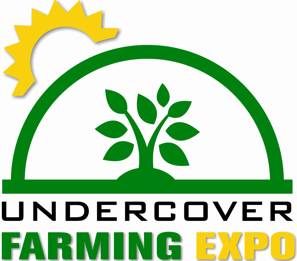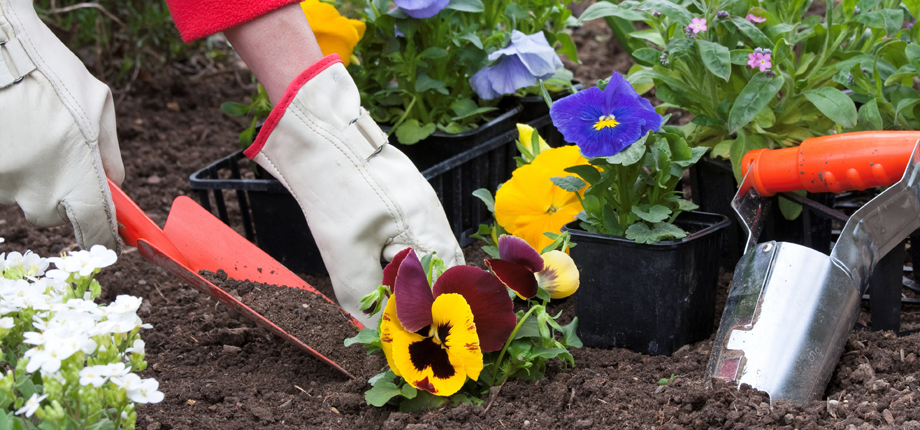Gerbrand Haasbroek
The potting mix that your plants grow in is called the “growing medium or media”. Dozens of different ingredients are used in varying combinations to create homemade or commercial growing media. By understanding the functions of growing media, you can evaluate the qualities of individual types and select which ones might work best for your pots and your garden.
WHY DO WE USE GROWING MEDIA?
Growing medium has three main functions
- Supply roots with nutrients, air, and water
- Allow for maximum root growth, and
- Physically support the plant.
Roots grow in the spaces between individual particles of soil. Air and water also travel through these pore spaces. Water is the medium that carries nutrients that plants need to fuel their growth, and air is needed for root growth and the health of soil microorganisms that help supply plants with nutrients.
DIFFERENT GROWING MEDIUMS
PERLITE
SunPerl horticultural perlite (SunPerl Horti)
Perlite is the snowy white granular particles that look like small pieces of styrofoam you will see in some potting mediums.
Perlite is formed when volcanic mineral rock is heated quickly causing it to exfoliate/expand. The result is a very lightweight, porous material that is hard and does not break apart easily. It is inorganic and sterile, has a neutral pH and can hold 3-4 times its weight in water yet will not rot or become soggy.
WHY USE PERLITE
Sun Silicates supplies perlite in 3 different grades for the horticultural industry – small, medium and large.
Medium grade perlite is best to use in potting mixes for seeds and seedlings.
- The principal value of perlite in any potting medium is providing aeration and improving water drainage
- The surface area of perlite particles is covered with tiny cavities that hold moisture while the particles themselves create tunnels in the mixture that allow air and water to flow freely to the roots
- The most important aspect of growing seedlings is healthy roots. Perlite in potting soil provides that all important environment.
- Perlite is one of the best media for growing plants. It is possible to grow most plants in perlite alone and is just as successful as traditional peat mixes. Perlite can also be re-used.
- However, there are no nutrients in perlite so fertilizer must be added as soon as the first true leaves appear.
- In the garden, you can use perlite to open up airways in heavy soils by sprinkling the granules over the surface of your garden before you start planting. Wet it down to moisten it and work the perlite into the top 10-15 cm of soil.
- Some hydroponic systems use perlite as the sole growing medium with only water and nutrients added.
Perlite culture is a cost-effective growing medium. Less water and fertilizer is wasted because of perlite’s excellent capillary action of water and nutrients. Perlite is successfully used in virtually all horticultural applications.
VERMICULITE
Plants require soil aeration, nutrition, water and sun to grow. If you find that your garden soil is lacking in any or all of these arenas, you can add vermiculite to improve the soil structure.
WHY USE VERMICULITE
Vermiculite can be found in potting soil or purchased by itself in five different grades – micron, super fine, fine, medium and large. As a guide, one must use the smallest size of vermiculite for seed germination and then use the larger sizes as a growing medium for improved soil aeration.
Vermiculite is the name of a group of hydrated laminar minerals (aluminum-iron magnesium silicates) which look like mica. Horticultural vermiculite is processed at high temperature that expands it into accordion shaped pellets composed of multiple layers of thin plates. It will not rot, deteriorate, or mold and is enduring, odourless, non-toxic and sterile. The word “Vermiculite” literally stems from the Latin word “Vermiculus”, which when translated to English means “little worm”.
Adding vermiculite to the garden or adding vermiculite in potting soil increases water and nutrient retention and aerates the soil, resulting in healthier, more robust plants.
These are the benefits of using vermiculite –
Improves aeration
By adding vermiculite to the soil, you can improve the soil’s ability to hold and release water back to the plants. Vermiculite is also porous and so will hold high levels of air in soils which is essential for both root respiration and for the existence of soil micro-organisms
Enhances drainage
SunPerl Vermiculite is extremely absorbent. It soaks up the water and holds that water until the soil starts to dry out. It then slow releases the water into the soil.
Acts as a permanent soil conditioner
Unlike compost, which eventually breaks down into the soil, vermiculite doesn’t break down.
Makes other minerals available
SunPerl Vermiculite naturally reacts with soil compounds and makes available other nutrients such as calcium, potassium and magnesium.
Flower arrangements
Vermiculite can be used when arranging flowers. This eliminates the need to change the water, eliminates spills and keeps blooms fresh for days.
Growing media
Vermiculite can be used in hydroponics and soilless growing systems. These are beneficial in that little or no water or nutrients are wasted or washed away. The benefits here include the reuse of water and nutrients as well as full control over watering and nutrient levels that the plants receive
Vermiculite slightly raises the pH
Vermiculite is pH neutral, around 7.0 or so, but because of some compounds found within it, it can slightly raise pH, a plus for acidic soils.
Potatoes growing in Culite V available from Sun Silicates
Vermiculite, although less aerating than perlite, is the recommendation of choice for water-loving plants.
Sun Silicates (Pty) Ltd is the only South African manufacturer that can supply both perlite and vermiculite to the industry! Sun Silicates also does growing mixes and blends – please contact us for more information.
PEAT MOSS
Peat moss. Photo: https://www.seedsforafrica.co.za/products/sphagnum-peat-moss
Peat moss first became available to gardeners in the mid-1900s, and since then it has revolutionized the way we grow plants. It has a remarkable ability to manage water efficiently and hold on to nutrients that would otherwise leach out of the soil. While performing these amazing tasks, it also improves the texture and consistency of the soil.
Peat moss is dead fibrous material that forms when mosses and other living material decompose in peat bogs. The difference between peat moss and the compost gardeners make in their backyard is that peat moss is composed mostly of moss and the decomposition happens without the presence of air, slowing the rate of decomposition. It takes several millennia for peat moss to form and peat bogs gain less than a millimeter in depth every year. Since the process is so slow, peat moss isn’t considered a renewable resource
WHY USE PEAT MOSS
Gardeners use peat moss mainly as a soil amendment or ingredient in potting soil. It is acidic (i.e. low pH, typically between 5 and 6 pH), so it’s ideal for acid loving plants, such as blueberries and camellias. For plants that like a more alkaline soil, compost may be a better choice. Since it doesn’t compact or break down readily, one application of peat moss lasts for several years. Peat moss doesn’t contain harmful microorganisms or weed seeds that you may find in poorly processed compost. Peat moss is an important component of most potting soils and seed starting mediums. It holds several times its weight in moisture, and releases the moisture to the plants roots as needed. It also holds onto nutrients so that they aren’t rinsed out of the soil when you water the plant.
Peat moss alone does not make a good potting medium. It must be mixed with other ingredients to make up between one-third to two-thirds of the total volume of the mix. Many people feel a twinge of guilt when they use peat moss in their gardening projects because of environmental concerns. Proponents on both sides of the issue make a strong case about the ethics of using peat moss in the garden, but only you can decide whether the concerns outweigh the benefits in your garden. As a compromise, consider using peat moss sparingly for projects like starting seeds and making potting mix. For large projects, such as amending garden soil, use compost instead.
SO WHERE DO I START?
Different growing mediums – from left to right peat moss, perlite and vermiculite
Whilst there’s no “one size fits all” potting mix recipe that is perfect for all plants, we believe that every gardener should learn the basics to start with.
Two recommended starting potting mixes are –
- 30% Horti Perlite, 30% Culite V (Medium) 40% peat moss. Add soils
- 30% Horti Perlite, 30% Culite V (Medium) 40% compost
Happy planting!
For more information regarding growing media – feel free to contact us with any questions or queries! Or visit our website at www.sunsilicates.co.za

